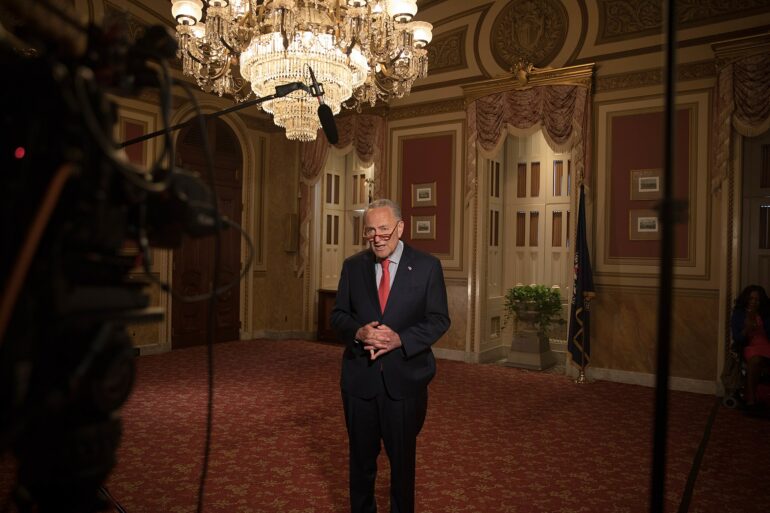The Senate reportedly failed Tuesday evening to pass a stopgap measure to keep the government open, with Democratic leaders rejecting a bipartisan attempt to extend funding and avert a shutdown.
The measure, which would have funded the government through November 21, fell short of the 60-vote threshold by a margin of 55 to 45.
The vote exposed sharp divisions within the Democratic caucus. Three members — Sen. John Fetterman of Pennsylvania, Sen. Catherine Cortez Masto of Nevada, and Sen. Angus King of Maine — broke with Senate Minority Leader Chuck Schumer to join Republicans in voting to fund the government.
“I cannot support a costly government shutdown that would hurt Nevada families and hand even more power to this reckless administration,” Cortez Masto said in a statement after siding with Republicans.
Senate Republicans quickly seized on the defections as evidence of Democratic infighting and growing discomfort with Schumer’s strategy. “I think that there is a recognition that the strategy that the Democrat leadership is employing here is the wrong one,” Senate Majority Leader John Thune told reporters.
Government funding is set to expire Wednesday at 12:01 a.m. unless Congress acts, triggering furloughs and program suspensions across federal agencies. The White House has already warned that nutrition assistance for low-income women and children will run out on October 1. With no appropriations bills yet signed by President Donald Trump, a shutdown would ripple through every corner of the federal government.
President Trump has signaled that Democrats, not Republicans, are to blame. “A shutdown is likely,” Trump said Tuesday, citing Democrats’ refusal to support the seven-week stopgap measure.
Sen. Rand Paul of Kentucky voted against the measure, joining most Democrats, though for different reasons. Paul said he opposed the bill because it failed to rein in federal spending.
This is the second time in as many weeks that Schumer has directed his caucus to block the House-passed funding bill. Democrats first filibustered the measure on September 19, immediately after it cleared the lower chamber.
At the same time, Democrats have been pushing their own $1.5 trillion counter-proposal, which includes restoring cuts to foreign aid and public broadcasting and undoing GOP reforms to Medicaid. That package also failed to gain 60 votes in the Senate.
Republicans have accused Schumer of playing politics with essential government funding. They note that under President Joe Biden, Democrats repeatedly voted for short-term spending bills similar to the one they now oppose.
“The Minority Leader once again refused to admit it is Democrats who are driving America into a shutdown,” said Senate Majority Whip John Barrasso. Quoting Schumer’s own words from 2013, Barrasso reminded colleagues: “‘What if I persuaded my caucus to say, ‘I am going to shut the government down… unless I get my way?’ It’s a politics of idiocy. A shutdown is idiocy.’”
Despite his past warnings, Schumer now insists Democrats are “on our front foot as we go into this fight.” Yet with only three defectors so far, his strategy has sparked growing unease inside his caucus — and raised the prospect that Democrats will shoulder the blame for driving the government into shutdown.
[READ MORE: Fetterman Tells Democrats to ‘Win Elections’ as Shutdown Fight Escalates ]



